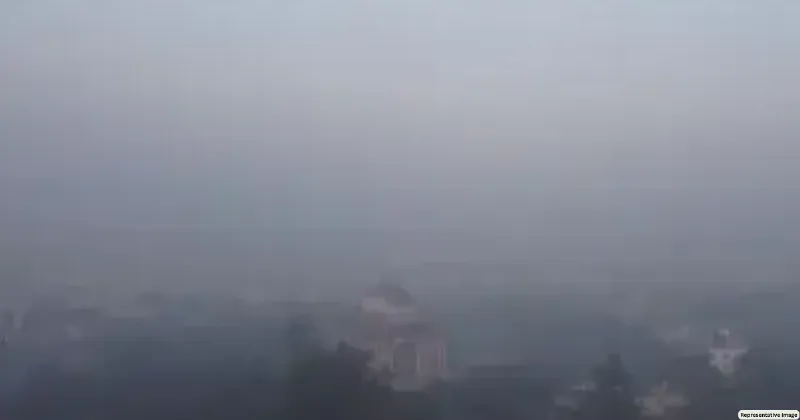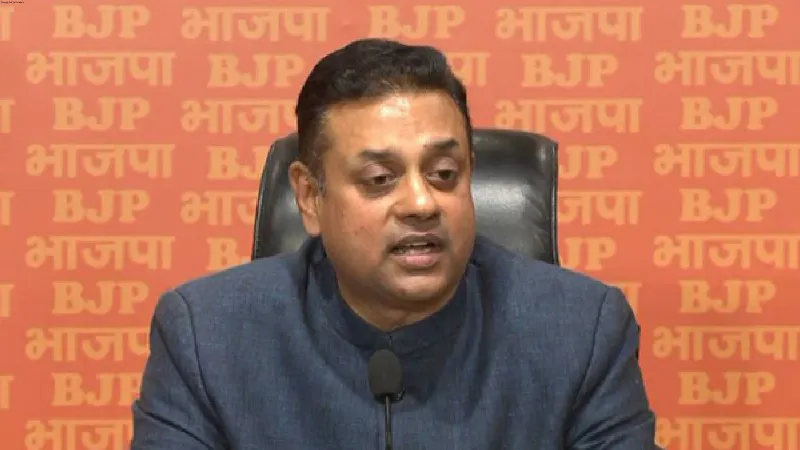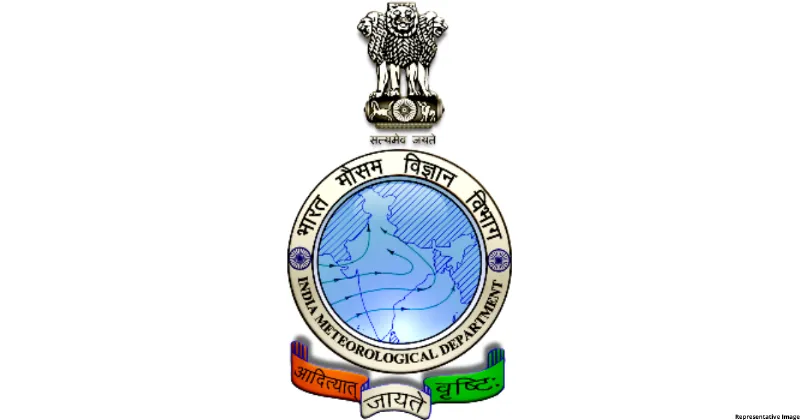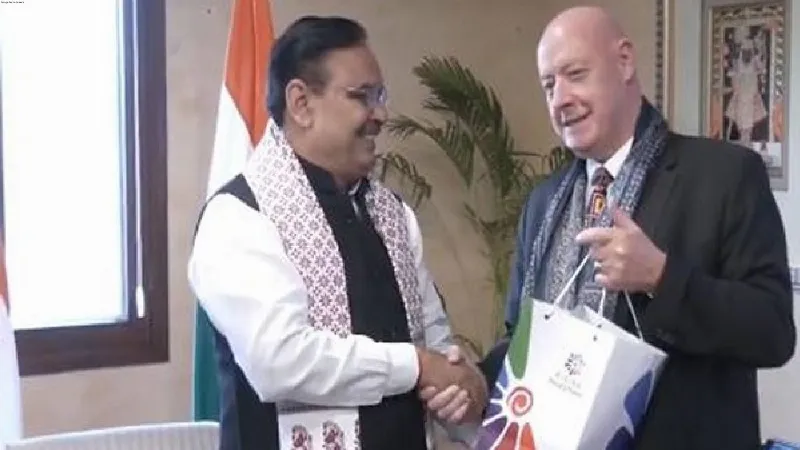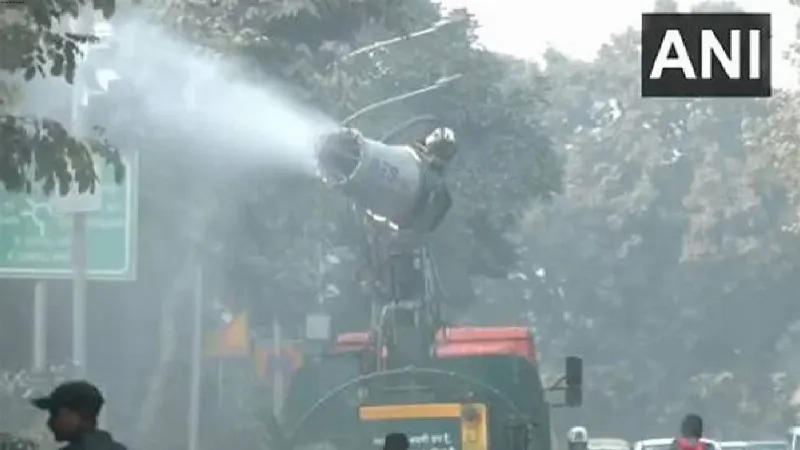Latest News
IAF's C-17 Globemaster Cargo plane to translocate 12 Cheetahs from South Africa

New Delhi: Twelve more Cheetahs, including seven males and five females, will be translocated to India on Saturday through Indian Air Force's C-17 Globemaster Cargo plane.
The Cheetahs will be translocated to Kuno National Park in Madhya Pradesh.
Union Minister of Environment, Forest and Climate change, Bhupender Yadav today announced the translocation of twelve Cheetahs from South Africa to India on February 18.
Addressing the media on this occasion, Yadav said that bringing the Cheetah back to India will help in restoring the nation's natural heritage.
He also thanked the Defence Ministry and the Indian Air Force for extending full support for the translocation.
The Union Minister also mentioned about the various initiatives taken up by the ministry in the areas of wildlife conservation including Project Cheetah, LIFE concept and its sustainability, Green growth namely Green Credit, Mishti - for mangrove conservation and Gaj Utsav among others.
According to the Ministry of Environment, Forest and Climate Change, the last cheetahs in the Indian wilderness were recorded in 1947 when three cheetahs were shot in the Sal (Shorea robusta) forests of Koriya District, Chhattisgarh State.
The main reasons for the decline of cheetahs in India were large-scale capture of animals from the wild for coursing, bounty and sport hunting, extensive habitat conversion along with a consequent decline in prey base and in 1952 Cheetahs were declared as extinct.
The goal of the Cheetah introduction project in India is to establish viable cheetah metapopulation in India that allows the cheetah to perform its functional role as a top predator and provide space for the expansion of the cheetah within its historic range thereby contributing to its global conservation efforts.
The major objectives of the introduction project are to establish breeding cheetah populations in safe habitats across its historic range and manage them as a metapopulation.
Also, to use the cheetah as a charismatic flagship and umbrella species to garner resources for restoring open forest and savanna systems that will benefit biodiversity and ecosystem services from these ecosystems.
As per the ministry, major objectives are to use the ensuing opportunity for eco-development and eco-tourism to enhance local community livelihoods and to manage any conflict by a cheetah or other wildlife with local communities within cheetah conservation areas expediently through compensation, awareness, and management action.
In this context, the Government of India initiated G2G consultative meetings with the Republic of Namibia which culminated in the signing of a Memorandum of understanding (MoU) between the two countries on 20th July 2022 for cheetah conservation.
Following the signing of the MoU, in a historic first wild-to-wild intercontinental translocation, eight cheetahs were transported from Namibia to India on September 17, 2022, and were released into the quarantine bomas by Prime Minister Narendra Modi.
Post the mandatory quarantine period, the cheetahs have been released into the larger enclosure in a phased manner. All eight individual cheetahs are doing very well in terms of natural behaviour, body condition, activity pattern and overall fitness. All Cheetahs are doing well and hunting the wild prey.
"As per the Action Plan for Cheetah Introduction in India, annually 10-12 cheetahs are required to be imported from African countries for the next 5 years at least. In this context, the Government of India initiated bilateral negotiations with the Republic of South Africa since 2021 for cooperation in the field of Cheetah conservation. The negotiations were successfully concluded with the signing of an MoU with the Republic of South Africa in January 2023," the ministry said.
Under the provisions of the MoU, a first batch of 12 cheetahs (7 males, 5 females) will be translocated from South Africa to India on February 18, 2023.
The translocation of 12 cheetahs from South Africa to Gwalior and onwards to Kuno National Park through Helicopters is being done by the Indian Air Force.
A delegation of cheetah experts, veterinarians and senior officials will be accompanying the cheetahs during the transcontinental translocation exercise.
Post arrival in India, all 12 cheetahs will be housed in specially created enclosures at Kuno National Park for completing the mandatory quarantine period and the animals will be intensively monitored.
For taking India's ambitious project on Cheetah Introduction forward, a consultative workshop involving international cheetah experts, scientists, veterinarians, and forest officials has been planned for February 20 at Kuno National Park.
The outcome of the workshop will pave way for better cheetah management and will help in successfully establishing cheetah metapopulation in India.
The Government of India is optimistic about the success of Project Cheetah with the active support and involvement of international experts from South Africa and Namibia, scientists, veterinarians, the Government of Madhya Pradesh, the Indian Oil Corporation and local communities. (ANI)

